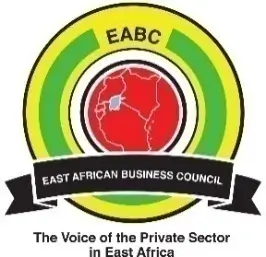- EAC Secretary-General Peter Mathuki said cargo currently accounts for just two percent of global air travel, arguing that air travel is unattainable due to high costs for both passenger and cargo transportation.
- Regional airlines have been pushing for an open skies policy to allow national airlines to travel to other countries without restrictions, but this has yet to be achieved.
The East African Community has called on African leaders to urgently implement the Single African Aviation Market (SAATM) agreement to address the high cost of air travel in the region and boost development.
EAC Secretary-General Peter Mathuki said cargo currently accounts for just two percent of global air travel, arguing that air travel is unattainable due to high costs for both passenger and cargo transportation.
“These costs can be reduced if we make a political commitment to implement the African Single Market in Aviation (SAATM) Agreement,” Mr Mathuki said during the 7th Africa Infrastructure Development Program (PIDA) Forum last week.
Regional airlines have been pushing for an open skies policy to allow national airlines to travel to other countries without restrictions, but this has yet to be achieved.
This comes at a time when African nations are shielding their airlines from stiff competition and raising doubts as to whether the dream of an open sky policy can be realized.
In 1988, a number of African countries joined forces in the so-called Yamoussoukro Declaration to create open airspace to facilitate movement and boost trade on the continent.
In 2000, the decision was endorsed by the leaders of the Organization of African Unity – now the African Union – and became fully binding in 2002.
However, to date not much has been done in terms of member states adopting the Open Skies policy as 14 nations have not ratified the treaty.
The EAC Secretary General noted that the region continues to increase its investments in infrastructure to bridge the gap and improve intermodal connectivity.
“These investments have produced impressive results; For example, transit time from Mombasa to Kampala has improved from 20 days in 2010 to an average of six days in 2021, resulting in a cost reduction from $3,500 in 2010 to $2,200,” he said.
Mr Mathuki also commended African leaders for prioritizing investments in One Stop Border Posts (OSBPs), which have facilitated cross-border trade by improving border crossing efficiencies.
“The use of technology at OSBPs has improved the sharing and exchange of information between agencies, enhanced border security, reduced border transit processing times for merchants and carriers, and improved supply chain reliability through streamlined and harmonized procedures,” he said.
The use of technology, he added, has improved regional competitiveness and led to the implementation of initiatives such as the Regional Electronic Cargo Tracking System (RECTs), Single Customs Territory (SCT) and the modernization of customs management systems.
Read original article
Disclaimer: The views and opinions expressed in this article are those of the authors and do not necessarily reflect the official policy or position of TradeMark Africa.















